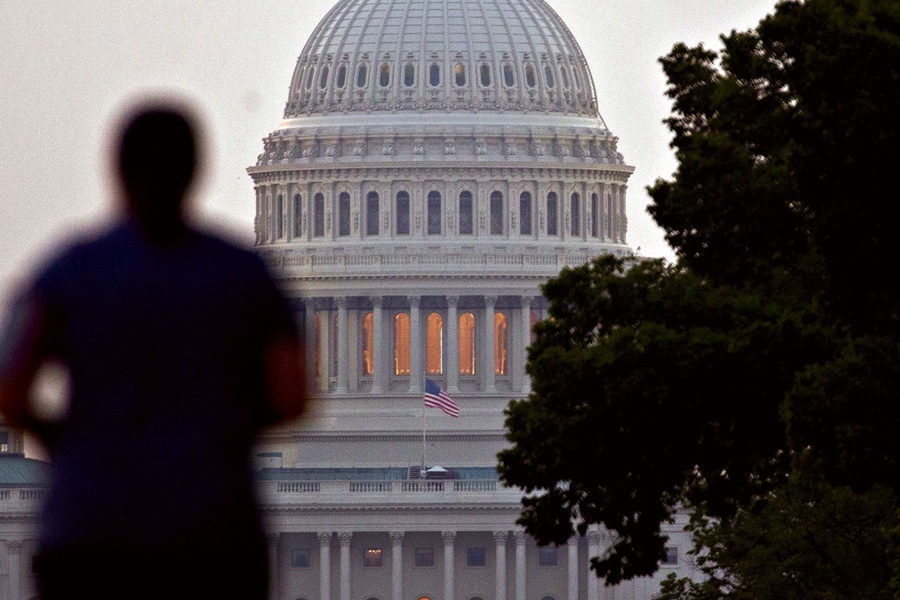

Legislation that would halt an SEC proposal targeting potential financial advisor conflicts involving the use of artificial intelligence and other advanced technologies faces a tough legislative path if it can’t get Democratic support.
Sens. Ted Cruz, R-Texas, and Bill Hagerty, R-Tenn., introduced a two-page bill Tuesday that would prohibit the Securities and Exchange Commission from finalizing, implementing or enforcing a proposed rule that would require investment advisors and brokers who interact with clients and customers through AI and predictive data analytics to “eliminate or neutralize” conflicts in which technology optimizes the advisors’ or firms’ revenue interests over the interests of the investor for the highest possible return.
A wide range of financial industry critics have called on the SEC to withdraw the proposal because they say it is too broad and would inhibit the development of technology. The proposal “would capture everything from simple spreadsheets to artificial intelligence,” Cruz and Hagerty said in a statement.
“By waging a war on technology, the SEC would hurt the very investors that it claims to be protecting – Americans saving for retirement,” Cruz, ranking member of the Senate Commerce Committee, added in the statement. “Our bill will halt this crusade in its tracks by making sure the rule never sees the light of day.”
An SEC spokesperson was not immediately available for comment.
There were no Democratic co-sponsors for the bill upon its introduction, which poses a big obstacle in getting it through the Democratic-controlled Senate. The Senate Banking Committee, on which Hagerty sits, would have jurisdiction over the bill.
It’s more likely Republicans will make a point about their frustrations with the SEC than actually get the bill through the Senate.
“It’s a statement bill to lay down a marker in case Republicans capture the Senate in November,” Dan Crowley, a partner at K&L Gates, wrote in an email. “It seems highly unlikely [Senate Banking Committee Chair] Sherrod Brown would consider such a bill, which likely makes it d.o.a. in the current Congress."
Some Democrats have questioned the predictive analytics proposal, and one House Democrat, Rep. Ritchie Torres of New York, has called on the SEC to withdraw it. But that’s not the same as signing onto a bill to kill the measure.
“Until we see a co-sponsor from the Democratic side or Democrats become more vocal [against the proposal], it's difficult to see this legislation passing," said Milan Dalal, a partner at Tiger Hill Partners, a government relations consulting firm, and a former Democratic staff director on a Senate Banking subcommittee.
A Senate Commerce Committee aide said the bill’s authors are seeking Democratic support.
It’s tough for financial industry opponents of regulatory proposals to get Democrats to join them in an election year, just as it difficult to pass legislation in general in the months prior to the election.
“Election years can be a challenge for enacting stand-alone legislation, but we will work with the sponsors to encourage wider support and see what opportunities may arise to move this bill,” Dan Zielinski, chief strategic communications officer at the Insured Retirement Institute, wrote in an email.
The trade association was one of several that Cruz and Hagerty mentioned as supporting their bill. Others included the American Securities Association, the Investment Company Institute and the Securities Industry and Financial Markets Association.
Beyond a bill like the one Cruz and Hagerty introduced, another way to kill a regulation is for Congress to pass a Congressional Review Act after the final rule is promulgated. A CRA requires only a simple majority in the House and Senate and can bypass a Senate filibuster.
If a final rule is released within 60 legislative days of the end of a Congress, the next Congress can reach back and file a CRA. If Republicans win the Senate and White House and hold the House in November, it raises the possibility of a new Congress scuttling a final predictive data analytics rule if the SEC finalizes it within the look-back window. The CRA deadline is likely in late spring or sometime over the summer.
Republicans also may try to insert a provision in an upcoming government spending bill to halt the PDA rule. So far, Democrats have been united in opposing so-called riders to legislation that would fund the government and prevent a shutdown.
“The stance of all Senate Democrats is to oppose riders,” Dalal said. “But it wouldn't surprise me if a couple get through.”

Summit Financial unveiled a suite of eight new tools, including AI lead gen and digital marketing software, while MassMutual forges a new partnership with Orion.

A new analysis shows the number of actions plummeting over a six-month period, potentially due to changing priorities and staffing reductions at the agency.

The strategic merger of equals with the $27 billion RIA firm in Los Angeles marks what could be the largest unification of the summer 2025 M&A season.

Report highlights lack of options for those faced with emergency expenses.

However, Raymond James has had success recruiting Commonwealth advisors.
Orion's Tom Wilson on delivering coordinated, high-touch service in a world where returns alone no longer set you apart.
Barely a decade old, registered index-linked annuities have quickly surged in popularity, thanks to their unique blend of protection and growth potential—an appealing option for investors looking to chart a steadier course through today's choppy market waters, says Myles Lambert, Brighthouse Financial.
